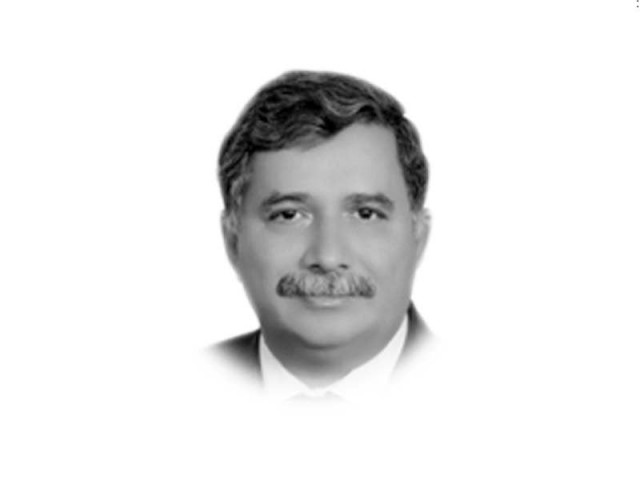Laws, conventions and the lifeblood of democracy
If laws are the skeleton and conventions the flesh, political will is the lifeblood of democracy

Laws of the Constitution occupy a central place in any system of democracy because they are enforceable in courts of law. Most modern states — such as the United States, India, Germany and Pakistan — have written constitutions that demarcates the functions, rights and duties of the organs of the federation, the federating units and the citizens. For instance, Article 4 of the Constitution of Pakistan commands that all acts of state functionaries must be in accordance with law, providing real strength to the principle of due process. Even during martial law regimes, when fundamental rights were suspended, superior courts, by exercising their power of judicial review, struck down many executive orders declaring them violative of law.
Fact of the matter remains that constitutional law alone does not portray the full political landscape. Conventions of the Constitution — though not enforceable in courts — give real flesh to the skeleton of democracy. If democracy is a body, law is its frame, convention its spirit. Without sound conventions, constitutional words remain spiritless.
Conventions are political traditions, evolved over the years, are embedded in the psyche of people and sanctified by public will. No leader in a mature democracy can afford to violate them.
In the United Kingdom, where the Constitution is largely unwritten, conventions are the pivot of the political system. The Monarch must give Royal Assent to legislation, though legally refusal is possible. The Prime Minister must sit in the House of Commons and enjoy majority confidence. Cabinet members must follow collective responsibility, and dissenting ministers resign. The Salisbury Convention bars the House of Lords from blocking manifesto bills. None of these are in law, but breaching them would trigger a political storm and imperil government survival.
Even in the United States, with a detailed written Constitution, conventions provide vitality. The two-term presidential limit began as a convention from George Washington until codified later. The peaceful transfer of power after elections, a purely political tradition, has long anchored democracy. Judicial nominations in the Senate also follow convention, such as restraint in the last months of a presidency. What ensures adherence is political will and accountability. Leaders who breach conventions face the music. Candidates have abandoned campaigns over minor controversies; prime ministers in the UK have resigned for seemingly small breaches, such as Boris Johnson's violation of COVID-19 restrictions — because the public backlash was too strong.
By contrast, Pakistan's constitutional journey is replete with disregard for both laws and conventions. The original Constitution of 1973 and subsequent 18th amendment provide a democratic framework, but political practice has persistently undermined its spirit. Elected governments were dismissed under Article 58(2)(b) by presidents rather than left to parliament. Military takeovers repeatedly subverted the democratic convention that political disputes be resolved through constitutional means. Courts, by invoking the doctrine of necessity, legitimised coups instead of protecting constitutional order. Cabinets have often been sidelined, their collective responsibility eclipsed by extra-constitutional centres of power. Such adventurism thrived because of weak political response.
Another glaring example in Pakistan is the role of the Election Commission in allotting reserved seats. In parliamentary democracies, the convention is that reserved seats — whether for women or minorities — are distributed to reflect the proportional strength of political parties in the legislature. This practice ensures that majority parties retain their representative character and that the will of the electorate is preserved.
However, in Pakistan the Commission has at times allotted such seats to parties with only nominal representation, bypassing the majority. By doing so, it relies on a narrow cobweb of laws, not endorsed by sound political conventions and ethics. The result is distortion of the popular mandate, erosion of parliamentary legitimacy and weakening of democratic institutions. In mature democracies, such manipulation would provoke political backlash and delegitimise any government that benefitted from it. In Pakistan, however, it persists without consequence — another reminder that laws without conventions and political will remain open to manipulation.
In Pakistan, leaders accused of grave violations — whether constitutional, political or ethical — frequently continue in office without consequences. Instead of resignations, there is defiance; instead of accountability, there is accommodation. The culture of public opinion and parliamentary oversight that makes conventions binding in the UK and the US is paid scant respect in our body politic.
This is not to say Pakistan lacks constitutional vision. The preamble sets out the foundations of representative government, fundamental rights and judicial independence. The 1973 Constitution, achieved through rare consensus and reinforced by the 18th Amendment, sought to strengthen parliamentary democracy and judicial autonomy. Articles 175 and 175-A established separation of powers, marking the judiciary as guardian of the Constitution. Yet these gains diminished and those proved to be words on water. The 26th Amendment dented judicial independence, showing how laws, however carefully written, can be undermined in the absence of conventions that respect institutional autonomy and accountability.
If laws are the skeleton and conventions the flesh, political will is the lifeblood of democracy. Without it, the system is frail and lifeless. In the US and the UK, political culture ensures that conventions are respected and violations punished. In Pakistan, devoid of political will and public backlash, both laws and conventions remain vulnerable to manipulation. Democracy cannot function by written provisions alone. It requires unwritten traditions, collective restraint and a shared understanding of limits. More importantly, it demands a political culture where violations carry consequences, where leaders know that defying conventions may be legal but never legitimate.
Until Pakistan cultivates such a culture, our democracy will remain a body without flesh, a body without a soul and a distant dream.















COMMENTS (1)
Comments are moderated and generally will be posted if they are on-topic and not abusive.
For more information, please see our Comments FAQ